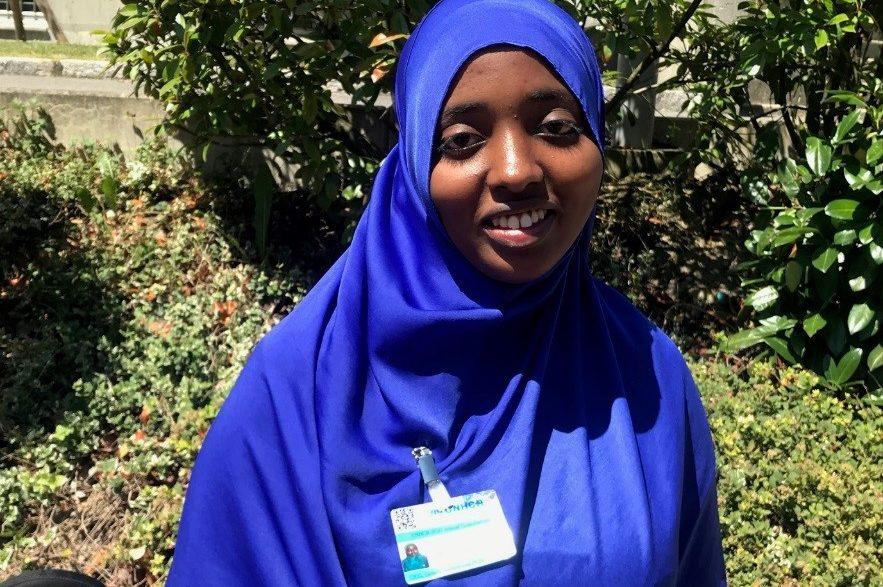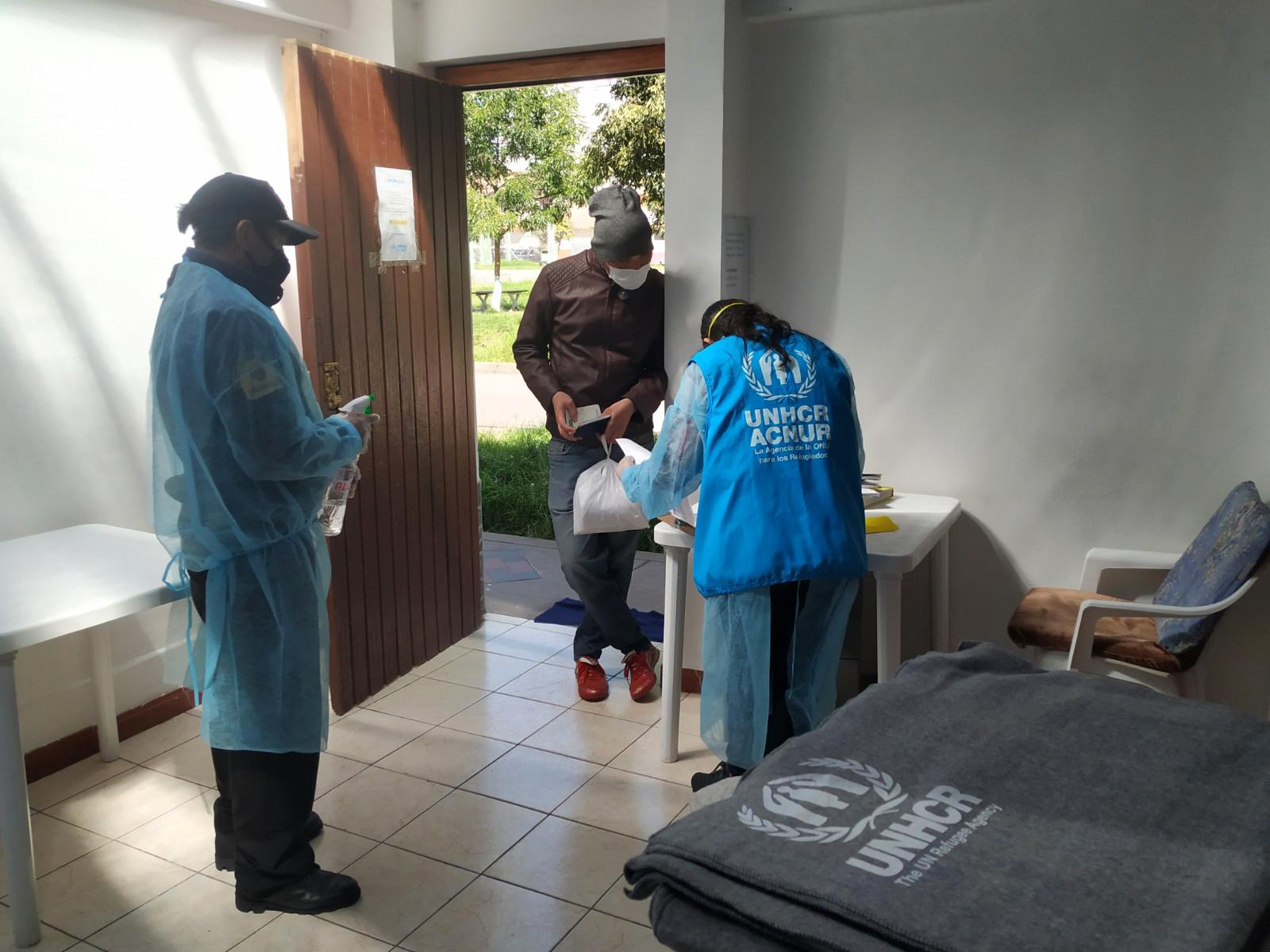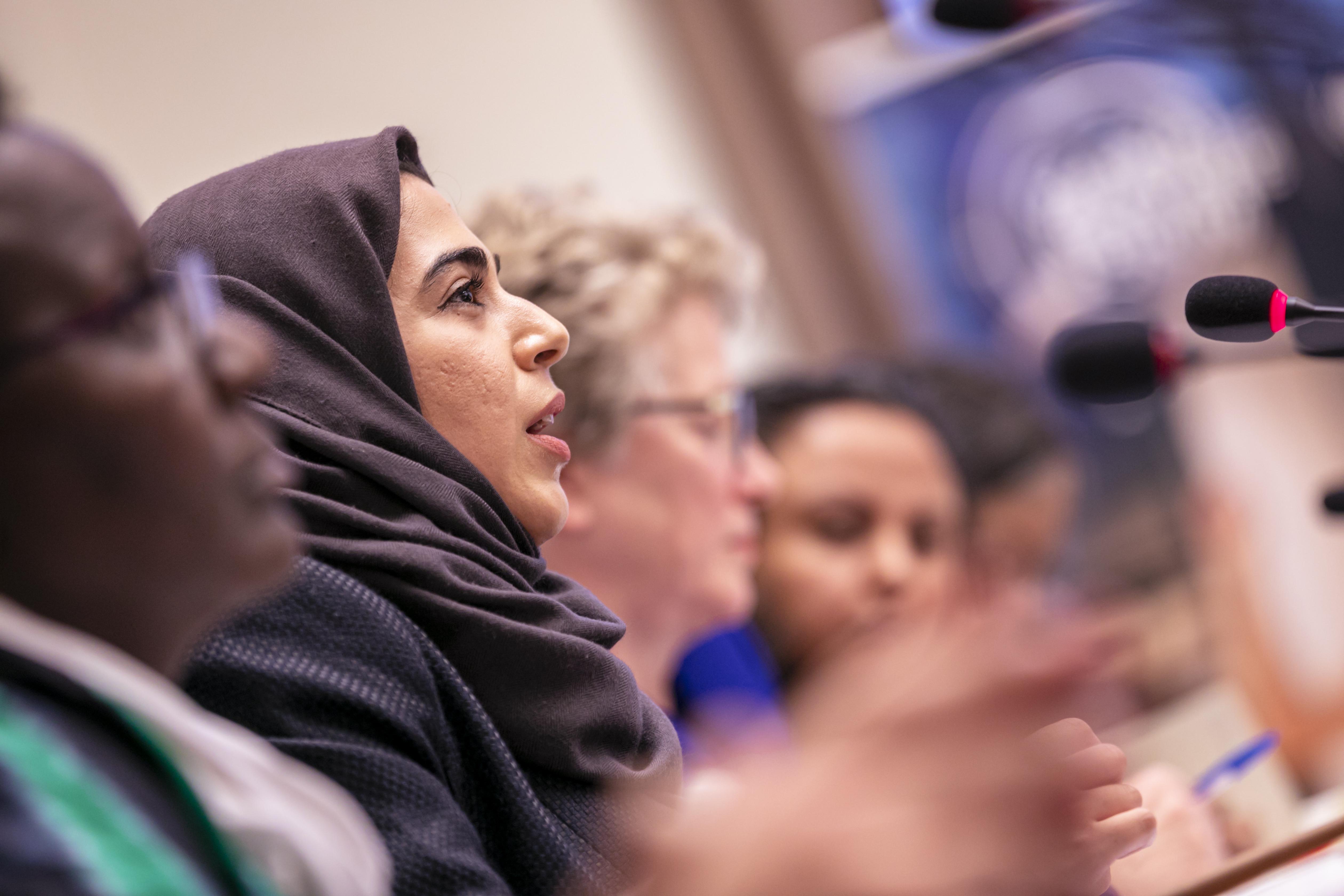
©UNHCR/Anouck Bronee
Interview with Fartun Mohammed
Fartun Mohammed, 24, is a Kenyan-Somali youth activist dedicates her life to help Somali refugees rebuild their lives when they return home. She is a member of WISE, the Women Initiative for Society Empowerment, in Galkayo, central Somalia. After decades of conflict, WISE aims to rebuild Somalia and puts women at the centre of this effort.
I believe in the future of Somalia and its people and I would like to help create conditions to prevent more Somalis from leaving the country – Fartun Mohammed
Tell us a little bit about your organization WISE and your role within it.
Fartun Mohammed: The Women Initiative for Society Empowerment (WISE) was initiated in 2010 by diaspora women who returned to Somalia and realised they would be stronger together. We help empower other Somali returnees, especially women, to rebuild their lives. Specifically, we collect the ideas and projects of Somali women and girls in the sectors of health, education and development that foster their self-reliance and helps re-build the community and the country after decades of civil war. Within WISE, I focus on the community practices that can be harmful for women and girls, such as female genital mutilation, and raise awareness to put an end to them. We also support education for girls. We have three offices in the cities of Adado, Galkayo, and Mogadishu. Our main funding partner is UNHCR but we are constantly looking for new partners so that we can meet the critical needs of returned Somalis.
How do you help keep girls in school?
F.M.: Our Keep Girls in School programme is designed to provide non-educational support to address the root causes of girls dropping out of school. We provide books, backpacks, school uniforms, shoes, and sanitary pads, for the many young women who drop out of schools while on their monthly periods. The programme also funds school fees for orphans. We support not only returned refugees but also members of the Somali community and IDPs.
We offer moral support, reassure them that they are not alone. - Fartun Mohammed
What are the experiences of Somalis returning to their home country? How do they reintegrate into society?
F.M: What I have observed is that Somalis who return are so happy to come back home. This doesn’t come without challenges. We can all understand that restarting a new life is very hard. Many returnees have lost their land or property. WISE supports them by providing training in carpentry or masonry, we also provide materials so they can build their own houses. One of the most important part of our work is that we stand in solidarity with them. We offer moral support, reassure them that they are not alone.
What motivated you to do this work in Somalia?
F.M.: When I was studying in Kenya, I used to watch a lot of documentaries about Somalia. I saw so much suffering. I told myself “when you finish your studies, you will go to back to Somalia and give back all that you have learned to Somali communities”. I kept true to my word. I left Kenya on my own, and I am now helping Somalis inside the country. I help girls exercise their right to education, I help raising awareness and combat different forms of violence against women, with my own hands I help rebuild houses for returnees – we do this together, in the spirit of solidarity – and we support infrastructure for medical facilities for them. I believe in the future of Somalia and its people and I would like to help create conditions to prevent more Somalis from leaving the country.
To support the work of WISE for Somali returnees, visit their website: http://wisesomalia.org/
By Anouck Bronee and Pauline Haupt



